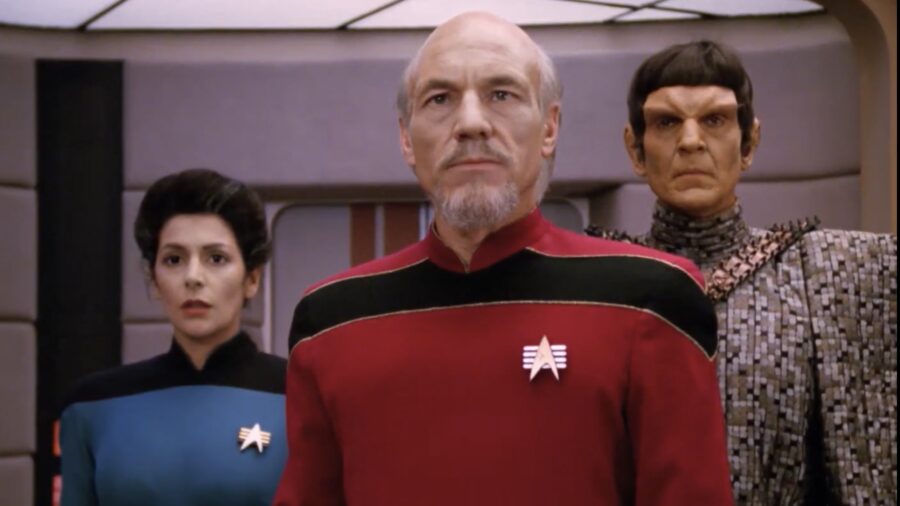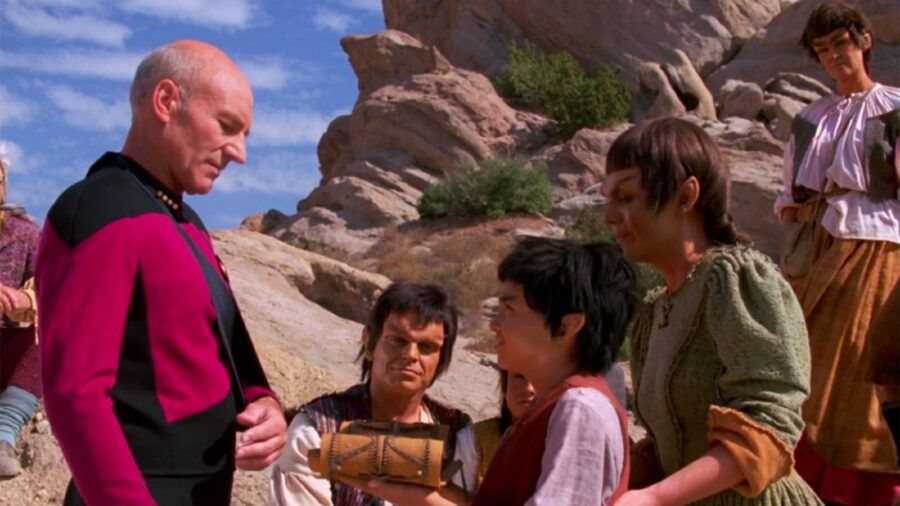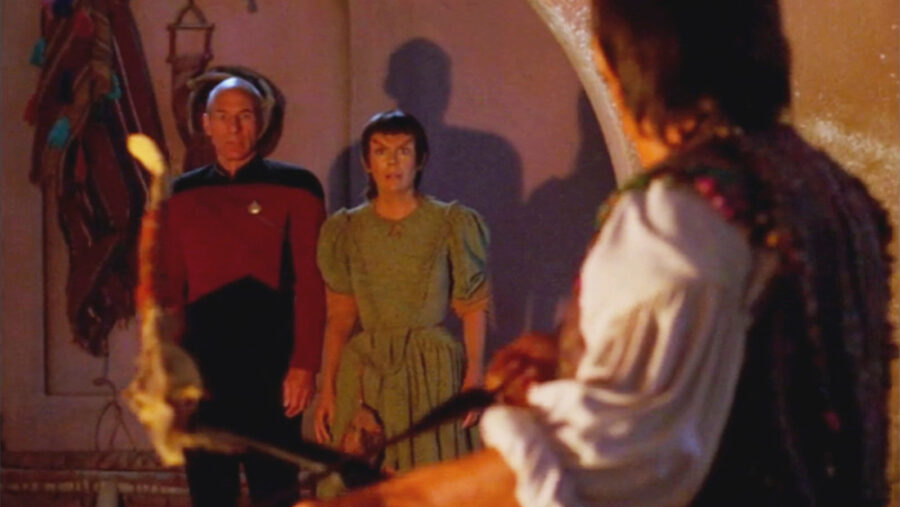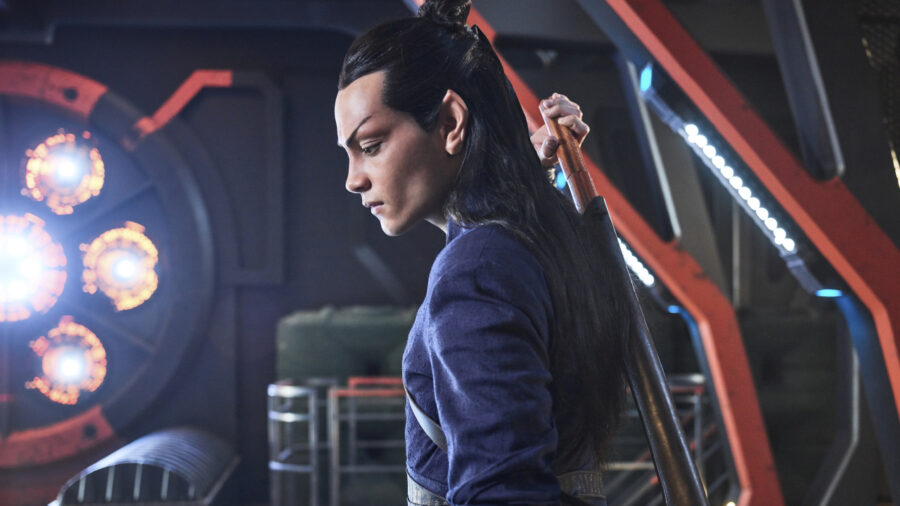
By Chris Snellgrove
| Published

Thanks to Star Trek: Picard, we know about the grim future of the title character. He becomes a washed-up old war hero who ends up running around in a robot body with a bunch of misfits out of a D&D session before reconnecting with both his old crew and the son he never knew he had. Frankly, it was a very bizarre future for our favorite character, and it was painful to see Patrick Stewart stuck in two seasons of awful storytelling before a decent Season 3. Interestingly, though, Star Trek: Deep Space Nine showrunner Ira Steven Behr imagined a better future for Picard decades ago.
A Different Star Trek Future For Picard

In an issue of Star Trek Monthly from 1998, Behr mentioned Picard’s future in the context of a discussion about The Next Generation episode “Who Watches the Watchers.” According to him, this was “a good hour of television” in which Picard is mistaken for a god by primitive people, but the showrunner lamented the show had to move on from this episode “because it was about boldly going forth.” Continuing, he said,“If the writers had had five seasons to work with that thread, who knows how many twists and turns Jean-Luc could have gone through,” but that the nature of serialized storytelling meant “that opportunity just wasn’t there.”
However, if you’ve never seen “Who Watches the Watchers” or it’s been a while, you might need a refresher on what this Star Trek episode is about and how it concerns Picard’s future. In this story, the Enterprise is helping out a Starfleet outpost that uses specialized camouflage technology to spy on some primitive aliens. When a camouflage malfunction causes one native to get injured, he is transported to the Enterprise for medical care, but an ineffective memory wipe means that he remembers “the Picard,” someone he describes to the rest of his people as a godlike being.
By the end of this Star Trek: The Next Generation episode, Picard’s own future is in serious jeopardy because he risks his life to prove that he is not a god. Specifically, he puts himself in front of a bow and arrow and tells the mistaken native to kill him if that is what it takes to prove that Picard is no god. Fortunately, the good captain is merely wounded, and is able to settle matters with the native before returning to the Enterprise.

What Ira Steven Behr seems to be saying is that, in a perfect world, we could have had five years worth of storytelling that revolved around Picard’s interactions with this planet and its people. He’s right, of course. For as cool as this episode is (Picard is literally willing to die for his own ideals!), it would have been fun to see the slow-motion trainwreck of an accidental Prime Directive violation. Specifically, it would have been interesting to see what other alternatives the captain and his crew explored before putting Picard’s life on the line as a last, desperate effort.
The great irony of the Star Trek showrunner’s words is that the Picard future he describes would have been something a show like Picard could have explored. Behr was lamenting the old-school form of television storytelling in which each episode was a standalone adventure with very few callbacks to earlier stories. In fact, his own DS9 series was the first Trek show to break that convention. Now, with prestige shows featuring shorter seasons built around a singular story, it might have been rewarding for Picard to give us several seasons of something like a “Who Watches the Watchers” arc.
Unfortunately, Star Trek’s own future became quite grim, and Picard’s first two seasons were a violent and confusing mess. This is proof (if anyone still needs it) that building your seasons around a singular story only works if that story is one worth telling. The tale of Picard putting his life on the line to save the development of an alien species is thrilling, but tales about him running around with a Romulan sidekick who only knows how to behead his enemies?

Yeah… we’d rather take the arrow to the chest than sit through that again.

Leave a Reply